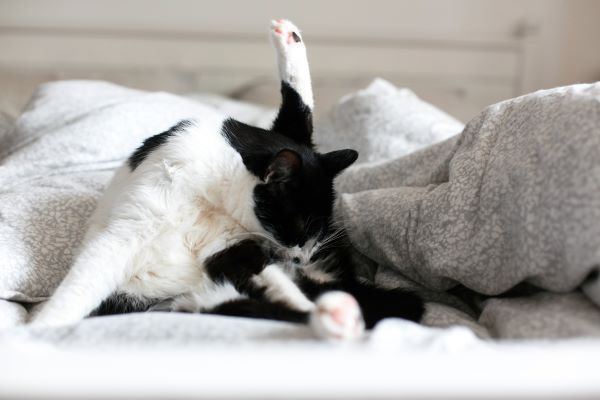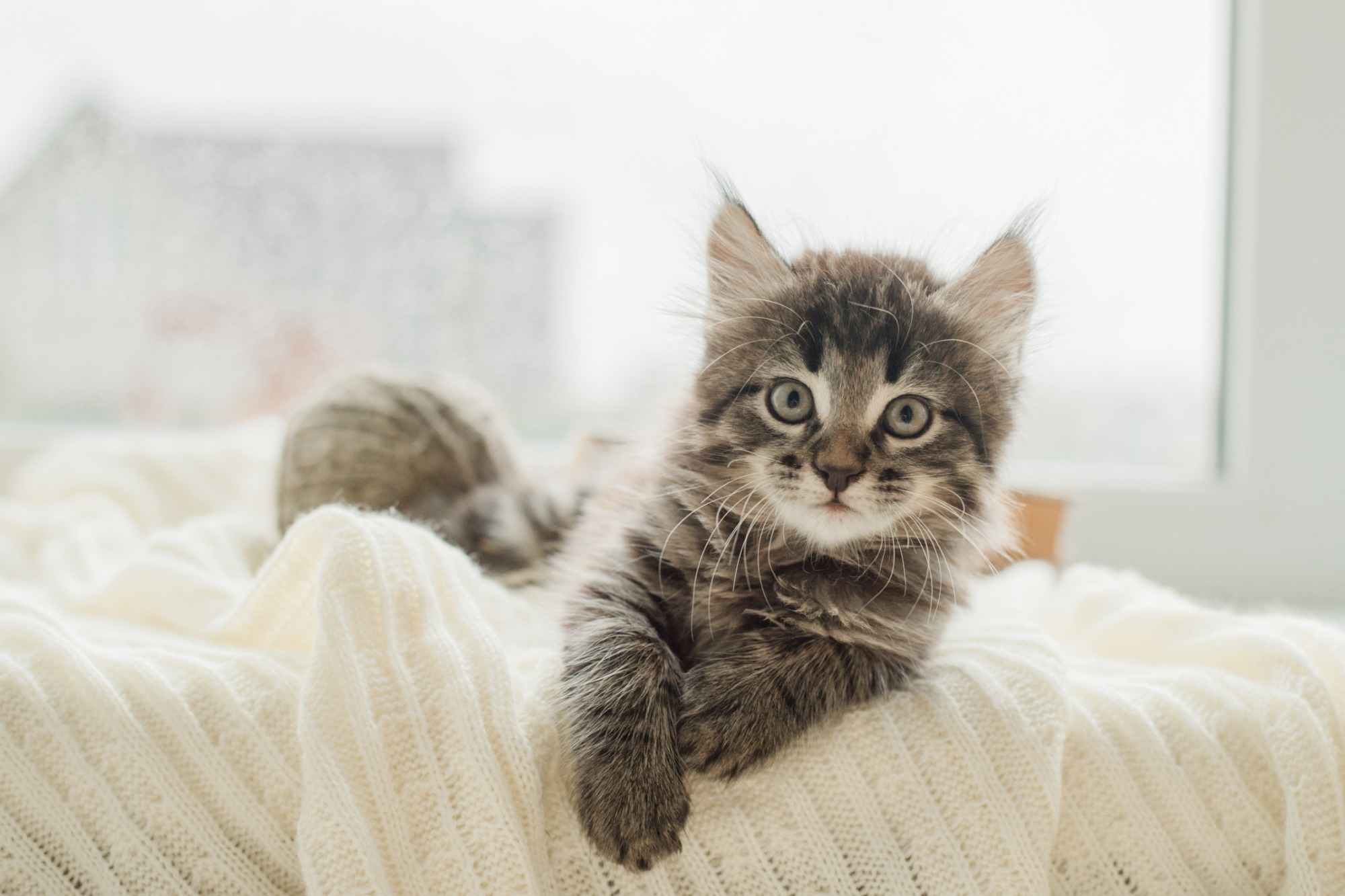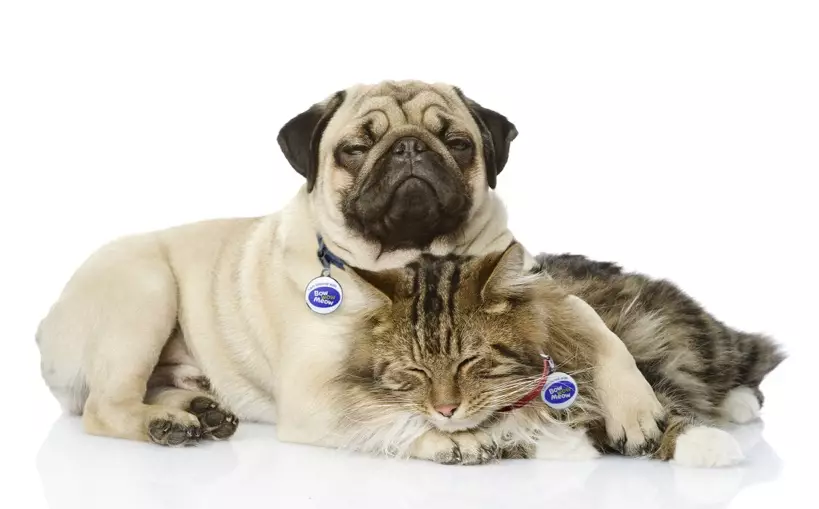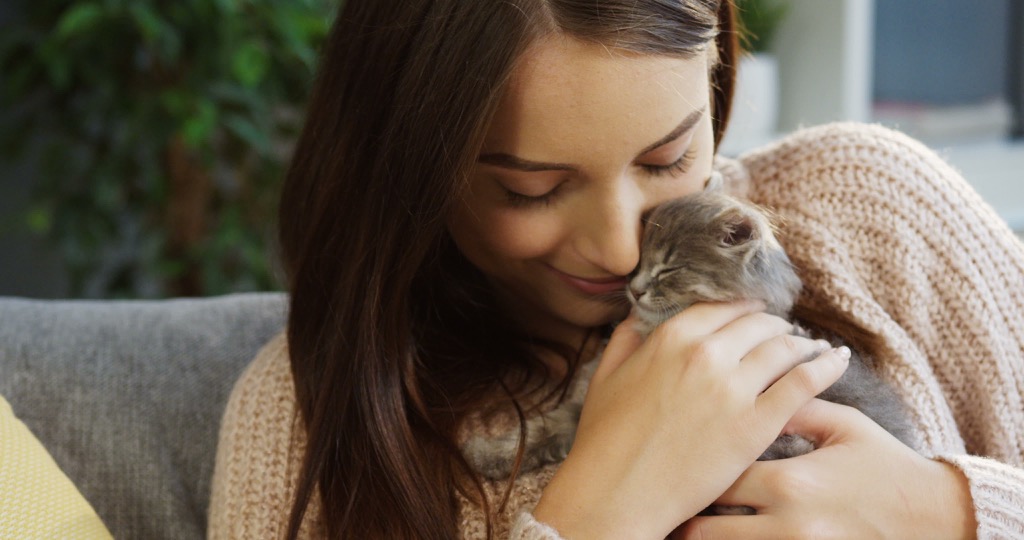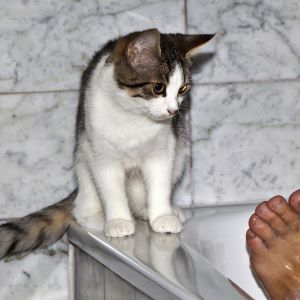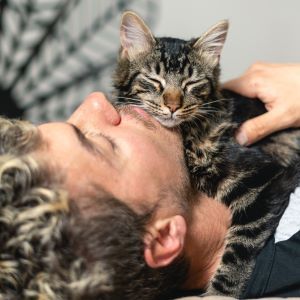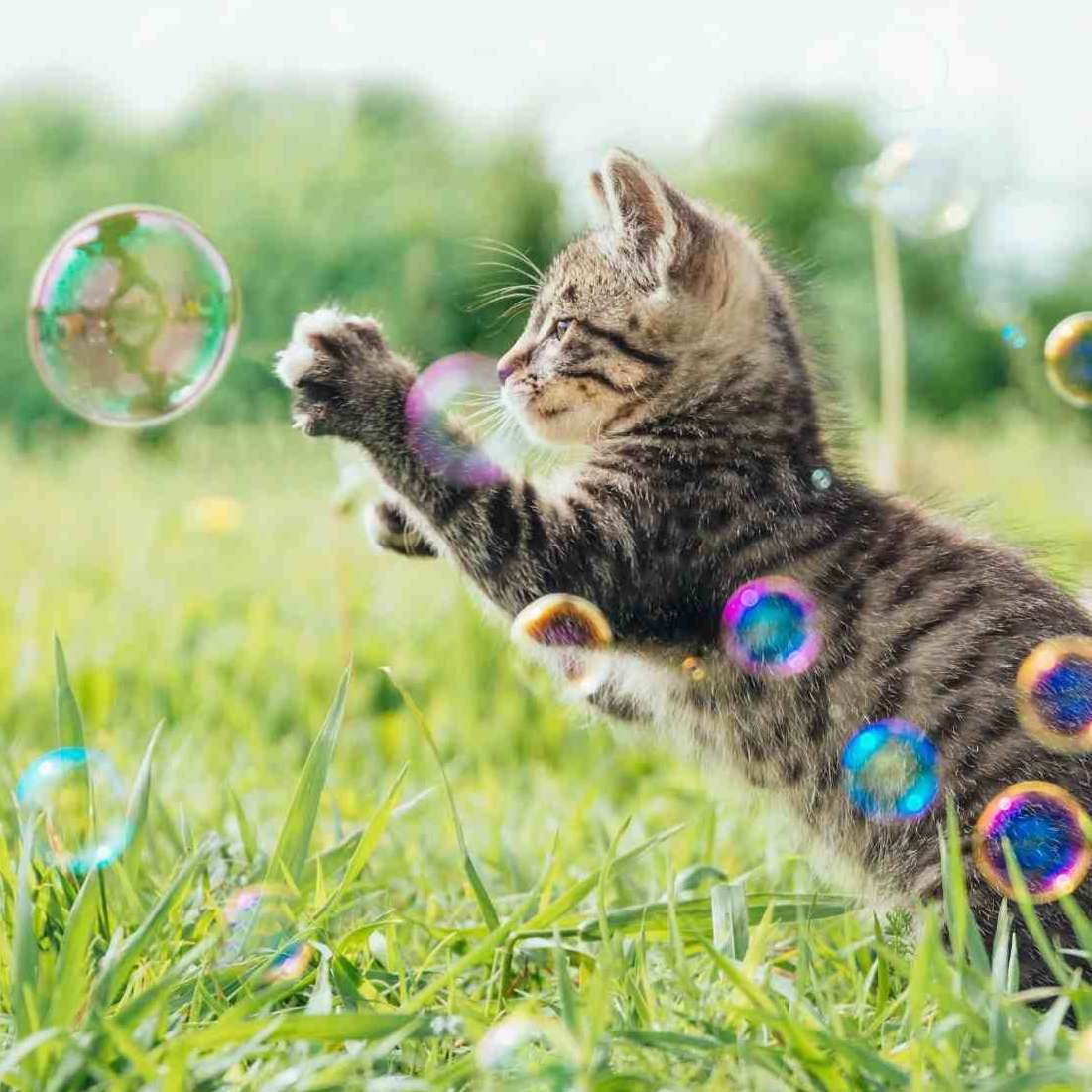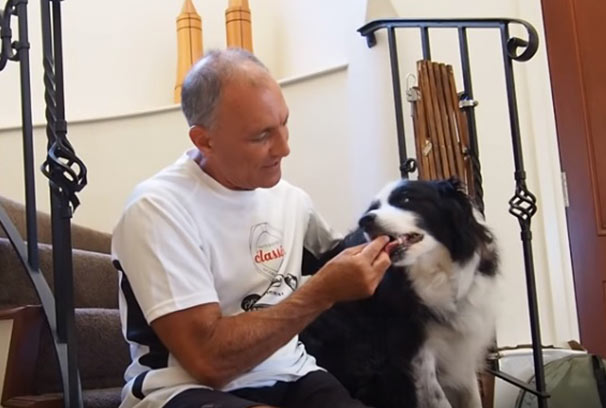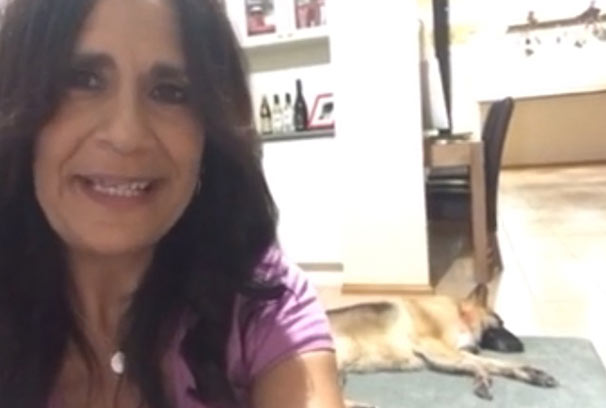The top 10 most disgusting things cats do…
 There is a perception of cats as being clean, graceful, and a little bit posh, and they may be so most of the time. But every cat parent knows they also have some weird, smelly, or downright disgusting habits that leave us wondering, “Why do they do that?!”
There is a perception of cats as being clean, graceful, and a little bit posh, and they may be so most of the time. But every cat parent knows they also have some weird, smelly, or downright disgusting habits that leave us wondering, “Why do they do that?!”
From toilet fascination to dead rodents on the doormat, here are 10 of the grossest things cats do—and what’s really behind those bothersome behaviours.
1. Sniffing or licking their butt
It may seem unsanitary, but it’s actually a completely normal and healthy feline behaviour. If your wondering why cats sniff or lick their butts, here are 3 possible reasons:
- Self-cleaning experts
Cats are fastidious groomers and aim to keep every inch of their bodies clean—including their behinds. They instinctively clean the area after using the litter box or when grooming their whole body. - Scent maintenance
Cats have scent glands near their anus, and grooming helps them manage and spread their scent. It also helps them monitor their own health via smell (yes, really!). - Comfort and hygiene
Just like they clean their paws or fur, cats clean their rears to prevent discomfort or matting. It’s part of their routine—especially for short-haired cats who can easily access that area.
2. Causing chaos in the litter box
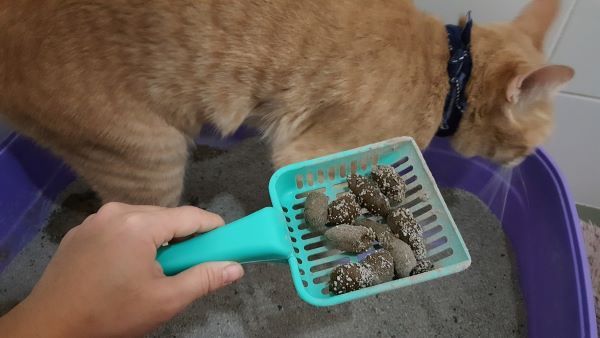
Some cats go a little overboard in the litter box—digging like they’re mining for treasure, scattering litter all over the floor.
Some cats do a quick deposit and exit without burying it, leaving a stinky surprise or accidentally stepping in their poop and tramping it around the house.
It’s frustrating (and usually smelly!) for owners, and while occasional litter box messiness is totally normal, if it’s occuring consistently it could mean the box isn’t clean enough, or your cat is stressed or marking territory, or there’s a medical issue.
3. Bringing dead animals as gifts
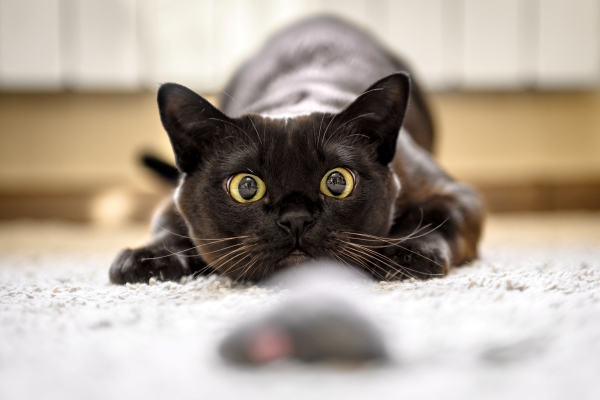
Whether it’s a mouse, lizard, bird or mystery creature, your cat’s “gift” may be rooted in their predatory instinct and feline social behaviour.
- Cats are natural-born hunters – even well-fed and pampered ones. If they have access to the great outdoors and the opportunity arises, they are likely to pounce… and bring their “meal” home to stash for later.
- In feline social behaviour, sharing food or prey is a bonding gesture. Mother cats bring prey to their kittens to teach them how to hunt and eat it, and your cat may well be doing the same with you (i.e. teaching you to hunt, feeding you, or offering you a gift to show affection or social connection).
4. Drinking toilet water
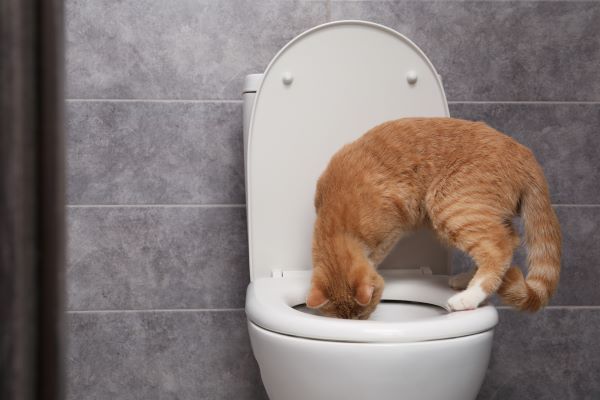
Some cats are oddly obsessed with toilet bowls. It’s cooler and fresher (to them) than their water bowl.
Tip: always keep the lid closed!
5. Scooting their butt
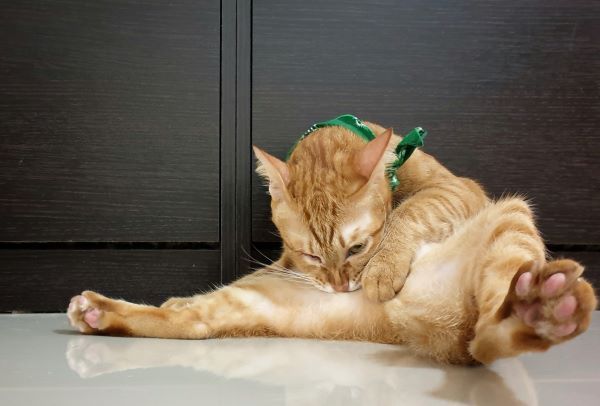
Scooting isn’t just for dogs—cats do it too. If you notice your cat dragging or rubbing their butt on the floor – or your bed – it could be due to an itch, full anal glands, or something stuck to their bottom that’s annoying them, such as litter or poop. If it’s occuring frequently, it’s time for a vet visit (and maybe a new set of sheets).
6. Rolling in dirty laundry or shoes
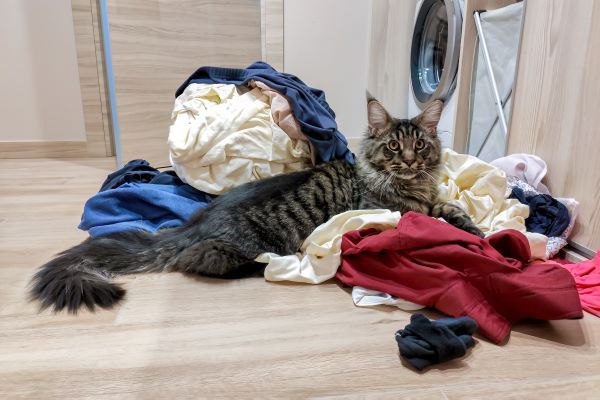
Your scent is comforting for your cat. That pile of sweaty gym clothes or stinky sneakers? It’s basically your smell on steroids – and a cozy cat cave full of you.
7. Eating bugs
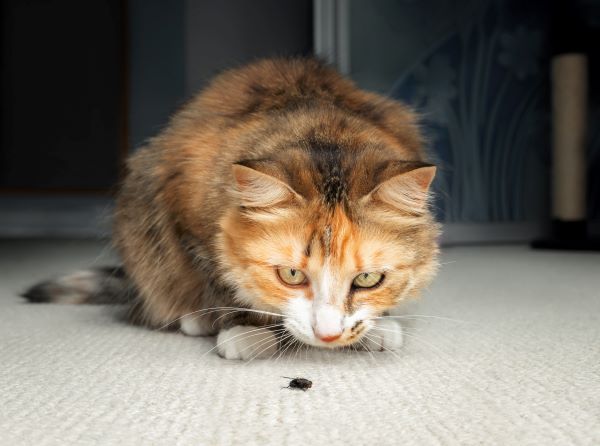
Cats are natural hunters, and bugs are fair game (and an “easy” target for indoor cats). Bugs move unpredictably, which also makes them interesting and entertaining for curious cats. Whether it’s a fly, spider, moth, or beetle, many cats will happily engage in a game of catch and snack.
Sometimes, you’ll only discover this bugging behaviour when you get a crunchy surprise left behind… like legs, wings, or half a spider.
8. Eating their own vomit
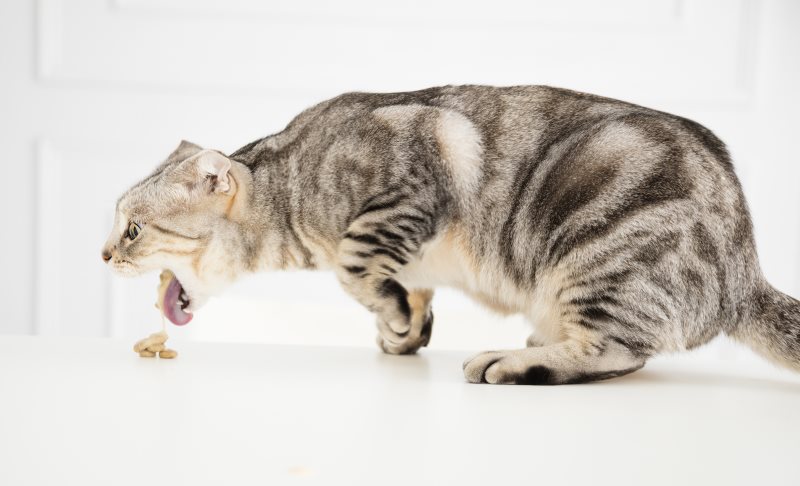
As disgusting as it is, some cats return to the scene of the upchuck and recycle. It’s usually instinctual—waste not, want not—but could also signal poor digestion or fast eating.
9. Hair chewing and furballs
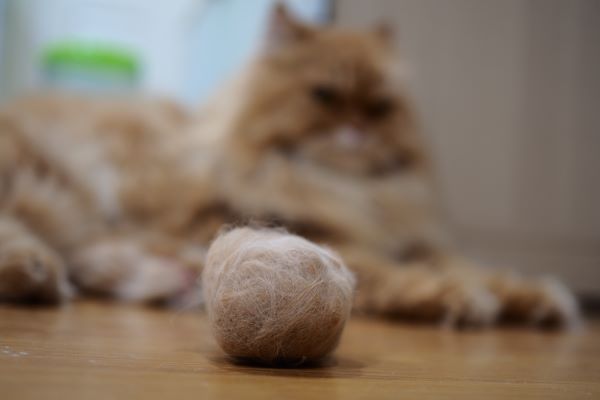
Whether it’s your hair, their own, or a combination, cats love a grooming session. When they groom themselves using their tongues, they swallow loose fur. Most of it passes harmlessly through the digestive system and exits in the litter box.
But sometimes, especially with long-haired cats or heavy groomers, the fur accumulates in the stomach and forms a furball. Eventually, the cat will vomit it up, usually accompanied by some hacking, retching, and a very unimpressed expression.
10. Drooling on you
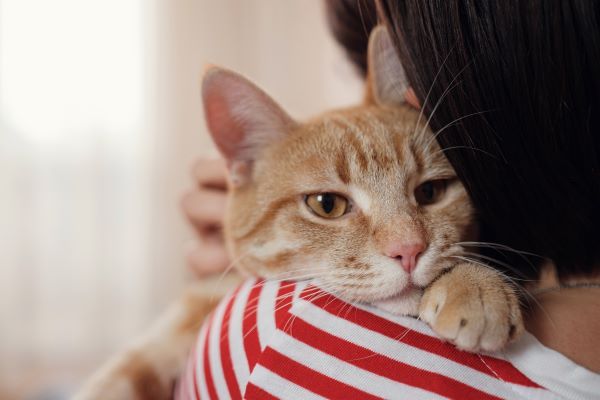
Some cats get so relaxed and happy that they drool during snuggle time. It’s kind of cute… until it soaks through your shirt.
Is that normal? When to visit the vet
Most of these quirky habits are harmless, but some can point to underlying health issues—especially if they become frequent or seem out of character.
Consider a vet visit if you notice:
- Frequent vomiting or eating vomit – could be a sign of digestive trouble, fast eating, or illness.
- Scooting or excessive licking at the rear – may signal anal gland issues, parasites, or allergies.
- Litter eating or intense digging – could be linked to anemia, stress, or urinary discomfort.
- Persistent drooling or bad breath – might indicate dental problems or nausea.
- Excessive grooming or hair chewing – can stem from skin irritation, fleas, or anxiety.
- Sudden changes in appetite or strange cravings (e.g., dirt, plastic) – might be a sign of pica or nutritional imbalances.
When in doubt, a quick vet check is always the best move.
Unsure how serious it is?
Bow Wow Meow policyholders can get access to trusted vet care anytime, anywhere, at no additional cost. Connect to an experienced Australian registered vet via video call, 24/7. Whether it’s providing vet advice, setting up at-home treatment plans, or confirming if you need to visit a vet in person, you can get help when you need it.
Find out more about our pet insurance cover options.
Can you discourage these gross habits?
Absolutely. Cats may have a mind of their own, but with a little patience and the right strategies, you can reduce (or even prevent) many of these behaviours.
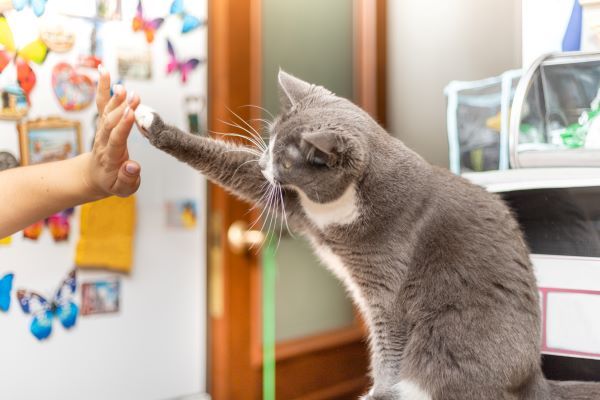
Tips to help your cat break the gross habit:
- Play more, hunt less: Use interactive toys to satisfy hunting instincts indoors, reducing the urge to bring in “gifts.”
- Slow down mealtime: Puzzle feeders or multiple small meals can reduce vomiting and prevent overeating.
- Keep toilets closed: Provide fresh, flowing water (like a cat fountain) to make their bowl more appealing.
- Redirect comfort behaviours: If they chew hair or roll in laundry, offer soft blankets or worn clothes you’re okay sharing.
- Clean up quickly: Remove vomit, bug bits, or food scraps right away to avoid re-engagement.
- Enrich their environment: Boredom often leads to weird habits—try climbing shelves, window perches, or treat-dispensing toys.
- Stay calm and reward good behaviour: Use gentle redirection and positive reinforcement. Never punish—cats respond best to patience and consistency.
Summary
 From licking their butts to snacking on bugs and leaving mystery gifts, cats definitely have some strange habits. But as bizarre as these behaviours may seem, many are perfectly normal and rooted in your cat’s natural instincts. So, next time your kitty drags in a rat or drinks from the toilet, try to remember — they’re not trying to gross you out… they’re just being cats.
From licking their butts to snacking on bugs and leaving mystery gifts, cats definitely have some strange habits. But as bizarre as these behaviours may seem, many are perfectly normal and rooted in your cat’s natural instincts. So, next time your kitty drags in a rat or drinks from the toilet, try to remember — they’re not trying to gross you out… they’re just being cats.
The key is knowing what’s harmless and what could be a sign of something more serious. By staying observant, keeping up with vet check-ups, and offering a healthy, enriched environment, you can manage their more disgusting habits while keeping your curious kitty happy and well.
Next steps…
If you enjoyed this article, you may like to sign up for our Pet Talk Newsletter. You may also find the following articles useful or interesting.
- The top 10 benefits of having a cat
- Creating safe outdoor environments for indoor cats
- Cat play and toys – it’s not just fun & games!
- Catnaps and kitty dreams: Why do cats twitch in their sleep?
- Why does my cat follow me everywhere? Feline behaviour
- Litter tray aversion in cats
- How to manage inappropriate urination in cats
Bow Wow Meow Pet Insurance can help protect you and your cat should an unexpected trip to the vet occur.
-
Find out more about our cat insurance options
-
Get an online pet insurance quote
Bow Wow Meow is proud to have been awarded winner of Canstar’s ‘Most Satisfied Customers’ Award in the Pet Insurance category for both 2024 and 2025!
Bow Wow Meow is proud to have been chosen as Product Review’s Pet Insurance Award Winner every year from 2018 to 2025! This is based on 2,995 independent customer reviews (as at 21/01/2025), with an overall rating of 4.3*
Google Review rating = 4.5* (based on 968 reviews)
Trust Pilot rating = 4.6* (based on 531 reviews)
Bow Wow Meow is proud to have been chosen as Product Review’s Pet Insurance Award Winner every year from 2018 to 2025! This is based on 2,995 independent customer reviews (as at 21/01/2025), with an overall rating of 4.3*
Google Review rating = 4.5* (based on 968 reviews)
Trust Pilot rating = 4.6* (based on 531 reviews)
Bow Wow Meow has been chosen as a winner in the Finder Pet Insurance Awards 2024. Finder’s panel of experts analysed over 140 quotes to award our Ultimate Care Plan the winner of the “Pet Insurance – Value” category.


